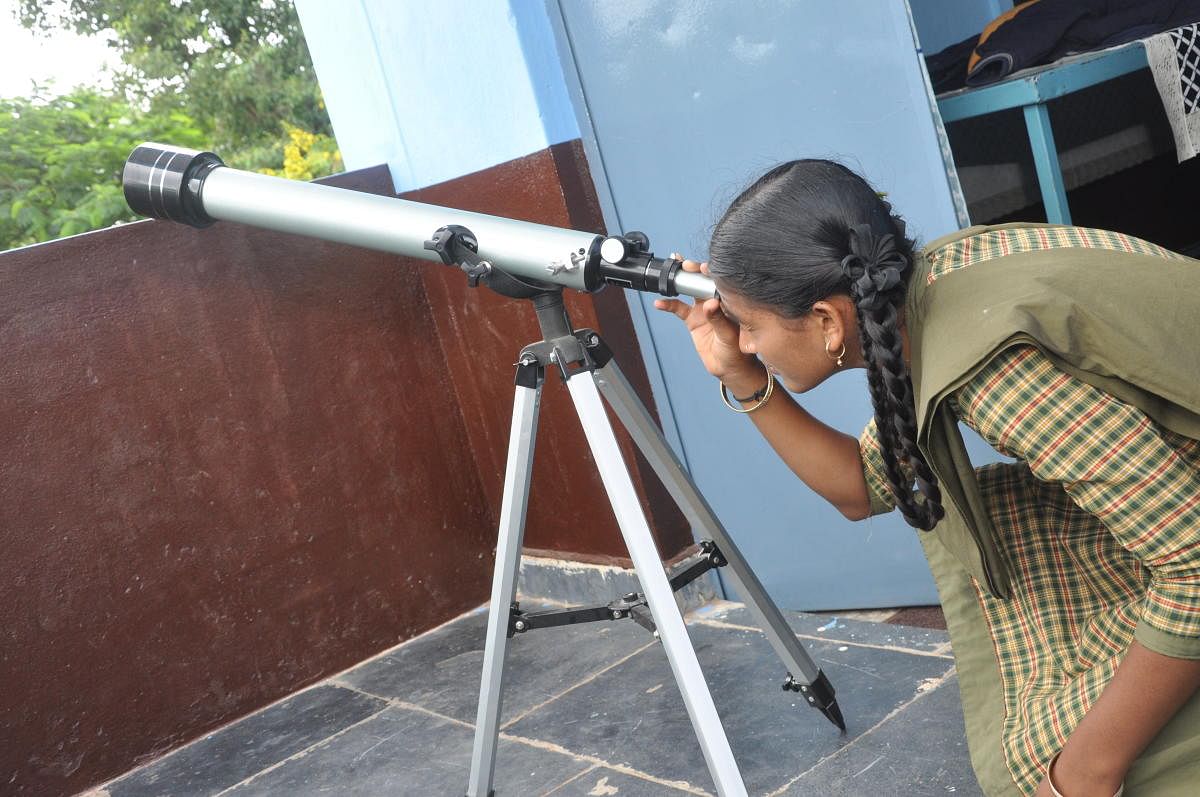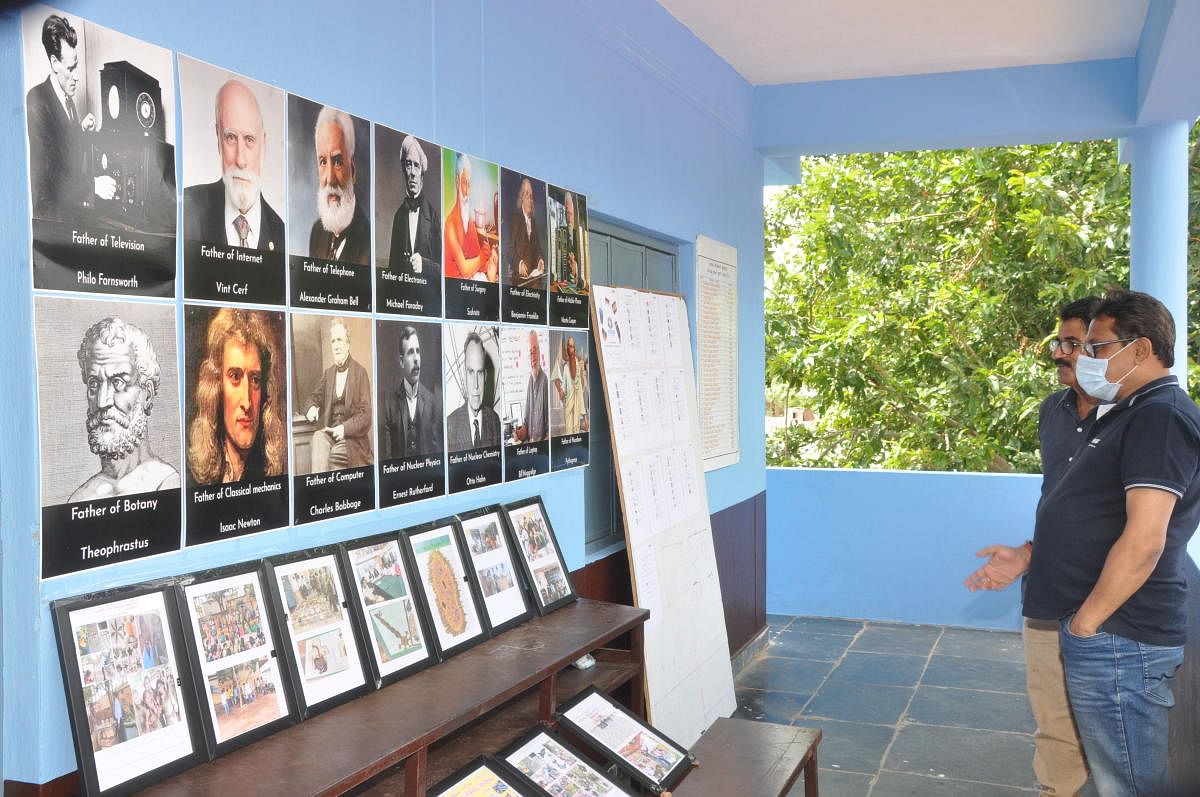

I want my students to dream big, and I want to support them in reaching for all their goals,” says Devendra Jirli, whose vision to bring STEM education to his school has come as a boon to the entire village.
Jirli, a high school science teacher from Talikeri village in Yelburga taluk, Koppal district, was determined for his students to have access to all the infrastructure and facilities needed to explore the various sciences.
Conceptualised to awaken students’ interest in the discipline, a science centre was recently inaugurated in Talikeri. The museum has 80 exhibits, focused on various topics in anatomy, botany, physics, chemistry and mathematics.
Days after the inauguration of the school’s new science centre, students gathered eagerly around a 'magic' tap. They scramble to see its various angles, and formulate theories to solve the mystery — how does the water keep flowing, even if there is no pipe connected to it?
“The magic water tap is one of my favourite illusions. We all tried to guess how the water could keep flowing even without any pipes, but now I know how it works, and am even more fascinated,” says Eramma Shankarappa Bangi, a class 10 student at the government high school in Talikeri.
Over 50 of the displays are motorised, using electricity. The exhibits have been mapped to include various topics from the state and the Central Board of Secondary Education (CBSE) syllabus, including the properties of light, climatic phenomena and algebra.
“I always wanted to study medicine, but my family was concerned it would not work. My father was a farmer, and he wanted me to study something more practical. I did not want to give up science entirely, so I became a teacher,” says Jirli. He wanted to ensure that parents’ financial and economic conditions do not limit children’s pursuit of their passions.
Having noticed few students opting for the science stream after school, the teacher aimed to kindle their interest in these subjects. “He would set up experiments to demonstrate concepts from our textbooks. It is wonderful to see our textbooks come alive,” said Radhika Balappa Bhandari (15), a student.
The centre also has scores of books and resources, along with displays of well-known scientists. This includes a dedicated section on women scientists. “I had noticed that the number of girls choosing to study science was very low, so I hope to especially encourage them,” said Jirli.
The students are allocated time for practicals every day. “There are 80 scientific models, we learn about one each day in detail,” Radhika adds.
The facility has also become a resource centre for schools in nearby villages, with teachers borrowing equipment for demonstrations in their own classes.
Modern equipment
The laboratory facilities include equipment worth over Rs 4 lakh to Rs 6 lakh donated by research organisations, alumni, parents and other supporters. Donations have ranged from lakhs to Rs 5 donated by a student recently. “Many people have reached out to us after we posted the news on social media. Some educators, including our school’s principal, have donated an entire month’s salary to the science centre,” said Jirli.
The emphasis on science and hands-on learning has improved academic performance. “I am a huge advocate for this initiative in my school. There is no longer a need to imagine concepts, we see it live and it helps us retain a lot more information than before,” Eramma says.
The teacher’s support is easing the concerns of parents. “I used to advise my daughter to choose the arts stream. Our relatives used to warn us that science was too difficult,” said Kamalakshmi, whose daughter Deepa graduated from class 10 and is currently studying science at the PUC level.
“My daughter’s interest in science grew greatly after her teachers started teaching concepts through practicals. I saw this happen with her entire class. Nearly 10 of them chose to do science after school. I am grateful that my daughter is able to study what she likes, and does not need to limit herself because of our fears,” she adds.
As a result of such efforts, the number of students from the village choosing science in higher education has doubled.
The interest from the present batch of high school students is so high, that upon their request, Jirli has begun conducting special classes on Sunday.
The students of Talikeri government school believe such initiatives should be common in schools. Eramma emphasises, “Technology has advanced so far ahead, it is high time that students in villages have opportunities to learn.”